- Home
- Alison Weir
The Princess of Scotland (Six Tudor Queens #5.5)
The Princess of Scotland (Six Tudor Queens #5.5) Read online
Copyright © 2020 Alison Weir
The right of Alison Weir to be identified as the Author of the Work has been asserted by her in accordance with the Copyright, Designs and Patents Act 1988.
First published in Great Britain in this Ebook edition in 2020 by
HEADLINE REVIEW
An imprint of HEADLINE PUBLISHING GROUP
Apart from any use permitted under UK copyright law, this publication may only be reproduced, stored, or transmitted, in any form, or by any means, with prior permission in writing of the publishers or, in the case of reprographic production, in accordance with the terms of licences issued by the Copyright Licensing Agency.
All characters – apart from the obvious historical figures – in this publication are fictitious
and any resemblance to real persons, living or dead, is purely coincidental.
Cataloguing in Publication Data is available from the British Library
Ebook conversion by Avon DataSet Ltd, Bidford-on-Avon, Warwickshire
eISBN: 978 1 4722 7105 1
HEADLINE PUBLISHING GROUP
An Hachette UK Company
Carmelite House
50 Victoria Embankment
London EC4Y 0DZ
www.headline.co.uk
www.hachette.co.uk
Contents
Title Page
Copyright Page
About Alison Weir
Also by Alison Weir
Praise
About The Princess of Scotland
The Princess of Scotland
Read on for an exclusive first look at: Katheryn Howard: The Tainted Queen
About Alison Weir
Alison Weir is the top-selling female historian (and the fifth-bestselling historian overall) in the United Kingdom, and has sold over 3 million books worldwide. She has published eighteen history books, including her most recent non-fiction book, Queens of the Conquest, the first in her England’s Medieval Queens quartet. Alison has also published several historical novels, including Innocent Traitor and The Lady Elizabeth.
Katheryn Howard: The Tainted Queen is Alison Weir’s tenth published novel and the fifth in the Six Tudor Queens series about the wives of Henry VIII, which was launched in 2016 to great critical acclaim. All four previous books in the series were Sunday Times bestsellers.
Alison is a fellow of the Royal Society of Arts and an honorary life patron of Historic Royal Palaces.
Also by Alison Weir
The Six Tudor Queens series
Katherine of Aragon: The True Queen
Anne Boleyn: A King’s Obsession
Jane Seymour: The Haunted Queen
Anna of Kleve: Queen of Secrets
Six Tudor Queens Digital Shorts
Writing a New Story
Arthur: Prince of the Roses
The Blackened Heart
The Tower is Full of Ghosts Today
The Chateau of Briis: A Lesson in Love
The Grandmother’s Tale
The Unhappiest Lady in Christendom
The Curse of the Hungerfords
The King’s Painter
Fiction
Innocent Traitor
The Lady Elizabeth
The Captive Queen
A Dangerous Inheritance
The Marriage Game
Quick Reads
Traitors of the Tower
Non-fiction
Britain’s Royal Families: The Complete Genealogy
The Six Wives of Henry VIII
The Princes in the Tower
Lancaster and York: The Wars of the Roses
Children of England: The Heirs of King Henry VIII 1547–1558
Elizabeth the Queen
Eleanor of Aquitaine
Henry VIII: King and Court
Mary Queen of Scots and the Murder of Lord Darnley
Isabella: She-Wolf of France, Queen of England
Katherine Swynford: The Story of John of Gaunt and His Scandalous Duchess
The Lady in the Tower: The Fall of Anne Boleyn
Mary Boleyn: ‘The Great and Infamous Whore’
Elizabeth of York: The First Tudor Queen
The Lost Tudor Princess
Queens of the Conquest
As co-author
The Ring and the Crown: A History of Royal Weddings, 1066–2011
A Tudor Christmas
Praise
Praise for ANNA OF KLEVE: QUEEN OF SECRETS
‘In this vivid and beautifully crafted portrayal, Alison Weir transforms Henry VIII’s much maligned fourth wife into a woman of passion, courage and mystery. Utterly gripping and endlessly surprising, this novel captivates from the first page to the last . . . A masterpiece’ Tracy Borman
‘A rounded, interesting portrait of the one who outlived the other wives’ The Times
‘It takes a writer of Weir’s skill to make us believe her fantasia on the established story. But more importantly, it takes a historian of Weir’s experience – her familiarity with the sources, and the period detail – to use this compelling fiction to cast a revealing fresh light on the real historical figure’ Sarah Gristwood
‘An outstanding novel, the most intriguing so far in Weir’s “Six Queens” series . . . Anna is a survivor . . . Weir tells her story with passion, a strong emotional pulse and an excellent knowledge base’ Historical Novel Review
‘The author is a master storyteller and creates a fascinating tale of love in all its guises’ Sun
‘Anna of Kleve comes alive on the page in surprising and mysterious ways that only an author of Weir’s superb finesse can achieve . . . Weir has put quite a twist to her tale that I utterly buy into and applaud’ Susan Ronald
Praise for JANE SEYMOUR: THE HAUNTED QUEEN
‘This six-book series looks likely to become a landmark in historical fiction’ The Times
‘Vivid characters and a wonderful sense of time and place combine with the story of a gentle, kind heroine who I really cared about, the more so because she was so cruelly robbed of her life at the moment of her greatest happiness’ Barbara Erskine
‘Alison Weir gives a fresh take on Jane Seymour’s life . . . A brilliant and engaging read’ Good Housekeeping
‘This brilliant book is a bombshell! Jane Seymour the shy mouse type? Think again! . . . She is vibrant, determined and she sets the King’s court on fire . . . A magnificent novel’ Kate Williams
‘Gripping and utterly compelling . . . Henry VIII’s third and – allegedly – best-loved wife is brought vividly to life . . . Not to be missed’ Tracy Borman
‘Meticulous research is magically transformed into a riveting narrative which takes us into the places non-fiction history cannot reach. It’s what Alison Weir does better than anybody – and what historical fiction was created to do’ Sarah Gristwood
Praise for ANNE BOLEYN: A KING’S OBSESSION
‘This is Anne Boleyn as you have never seen her before. I could not put it down’ Tracy Borman
‘An unforgettable portrait of the ambitious woman whose fate we know all too well, but whose true motivations may surprise you’ Telegraph
‘A triumph of fine detail . . . a complex depiction of an endlessly fascinating woman’ Elizabeth Fremantle
‘The story of Boleyn has been told many times, and from many angles, but this could be the best adaptation so far. A cracking read’ The Lady
‘Detailed, immaculately researched and convincing’ The Times
‘Alison Weir’s wonderfully detailed novel offers a spellbinding solution to the mystery of Anne’s true nature . . . At once an enthralling read, and a real contribution to our sense of the sixteenth century’ Sarah Gristwood
‘Anne comes alive and leaps from the page, fascinating, enthralling, full blooded . . . A brilliant evocation of the period . . . Wonderful’ Kate Williams
Praise for KATHERINE OF ARAGON: THE TRUE QUEEN
‘Well researched and engrossing’ Good Housekeeping
‘Weir is excellent on the little details that bring a world to life’ Guardian
‘Alison Weir brings Katherine of Aragon dazzlingly to life . . . A charismatic, indomitable and courageous heroine’ Tracy Borman
‘Yet again, Alison Weir has managed to intertwine profound historical knowledge with huge emotional intelligence, to compose a work that throws light on an endlessly fascinating historical figure. Yet her real gift in all of this is making it feel so fresh and alive’ Charles Spencer
‘Alison Weir is in command of her detail . . . her handling of Katherine’s misery and dignified response to her predicament is very touching’ Daily Mail
‘Weir’s undeniable strength is her immaculate description enabling the reader to be transported back to Tudor England’ Sun
‘A tender understanding of and genuine sympathy for this proud, much-loved and honourable Queen . . . I was gripped [from] start to finish’ Mavis Cheek
About The Princess of Scotland
The Princess of Scotland by bestselling historian Alison Weir is an e-short and companion piece to the compelling fifth novel in the Six Tudor Queens series, Katheryn Howard: The Tainted Queen.
‘The King would not approve of my falling in love . . . My marriage was in his gift’
Brought up in the magnificent castles of Scotland under the storm of her parent’s turbulent marriage, Margaret Douglas is well-acquainted with the changing whims of those who hold power. And when her father is exiled by King James V, Margaret is sent to England to seek refuge with her uncle, King Henry VIII.
Margaret is an asset to Henry, who plans to use her eligible marriage status for his own adventage. But, surrounded by the excitement and indulgences of the English court, will Margaret be able to resist the temptations of a young admirer? As she well knows, keeping secrets from the King can be a dangerous game . . .
Featuring the first chapter of Katheryn Howard: The Tainted Queen.
Margaret Douglas: The Princess of Scotland
Sometimes, I am amazed at how Fate has brought me to my twenty-seventh year. I have seen the rise and fall of queens and the temper and fury of kings, and have been a whisper from both the throne of England and the executioner’s block . . .
As far back as I can remember, my Englishness was impressed upon me. My mother might have been queen of Scots and then the wife of a Scots nobleman, but she never forgot that she was first and foremost an English princess – and a Tudor one at that.
It was only chance that saw me born an English subject, just over the border in Northumberland, even though my father was Scots and a Douglas, which was almost as important as being royal. To Mother, though, our royal English blood was paramount. Born the eldest daughter of King Henry VII of England, she was thirteen when, to cement a peace, she was married to James IV, King of Scots. She had loved him, for all his lechery, and given him six children, though only my half-brother James survived infancy.
Mother liked to talk about her younger years but she could barely bring herself to speak of the great battle that changed everything. Two years before my birth, King James was slain on the battlefield of Flodden, alongside the flower of the Scottish nobility. It was a terrible defeat for Scotland and a great victory for the English, and it left Scotland under the rule of my brother James V, a toddler in leading reins. Though the great lords were all hungry for power, my mother was named regent of Scotland during the minority of her son and awarded the guardianship of the young King. Her rule began well, until she became entangled with the Douglas clan and, in particular, with the Earl of Angus, my father, and secretly married him. It was not a politic marriage, but one based on lust, which very quickly burned out, and the secret was not kept for long. Then there was a mighty outcry indeed!
We Douglases can trace our ancestry back to the Emperor Charlemagne and the Sir James Douglas who carried King Robert the Bruce’s heart to the Holy Land. We honour his memory with a crowned heart in our coat of arms. They say we are a violent clan, but we’re a proud one too, even if few of my ancestors died in their beds. My father was no different, and he had charm and audacity in equal portions. My parents’ marriage excited the jealousy of the Scottish nobles. They suspected Father – and with good reason – of planning to usurp the regency and rule Scotland. The country was divided and, as civil war broke out, my mother was ousted from office and locked up. Fearful for her life, she escaped into England and the protection of her brother, my uncle, King Henry VIII; she was so far gone in pregnancy that it’s a wonder I wasn’t born in the saddle.
Apparently, I wasn’t expected to live, but thrive I did. ‘You were a fair young lady,’ Mother was fond of saying. As soon as I was old enough to understand about kings and queens and kingdoms, she never ceased reminding me that I was third in line to the English throne, King Henry having but the one daughter, Mary, and my mother herself being his next heir.
King Henry was very angry that Mother had been driven from Scotland and invited her south to London. But Father refused to go with her. He wanted to make peace with the lords and get his lands back, for they had been seized in the fighting.
‘He never even took leave of me,’ Mother recalled. ‘He just rode away. You may imagine how aggrieved I felt – I, who had loved him!’
Of course, I was far too young to be aware at the time of the clouds that would overshadow my childhood. I do not remember our sojourn in England, although we were there for about a year and King Henry and Queen Katherine apparently made much of me. Mother had summoned her old nurse to look after me, which left her free to plan her triumphant return to Scotland as regent.
I was not two years old when I stepped on Scottish soil for the first time, near Berwick. Father was waiting to greet us, but it was clear, Mother recalled later, that he was there under sufferance. Nonetheless, they were reconciled. But, on arrival in Edinburgh, it was made clear to my mother that she would not be allowed a share in the government or access to the young King James.
For years, she fought to regain power and custody of her son, but in vain. Even Uncle Henry let her down, signing a truce with the Scots lords without insisting on redress for the wrongs she had suffered. There was no money, for the lords withheld her revenues.
Throughout this time, I saw relatively little of Mother, for she was preoccupied with these political affairs and wrangling for what she believed to be her due entitlements. I was looked after by nurses and servants, yet she did make time to tell me all about her illustrious past and her grievances and her difficulties. She could not hide the fact that she was more devoted to King James than to me, even though I was with her, and she was not allowed even to see my brother. But I suppose it was understandable. I grew up believing that a mother must naturally look chiefly to the interests of her sons and that daughters were relatively unimportant. I did feel some pangs of jealousy, and resentment against James, but I hardly knew him and there was never a close bond between us.
For all Mother’s grumbles about poverty, I was brought up as a princess. We moved from palace to palace, like a small court. Scots was my first language, although Mother did teach me English. I was trained to virtue and grace, to obedience, truth and the fear of God. I tried very hard to do good and learn wisdom. And I suppose I was content – for a time.
I was five when Mother found out that Father had a mistres
s. There were vicious quarrels, which I heard all too clearly on occasion.
In her anguish and jealousy, Mother did not spare me. ‘Your father has done me much evil!’ she said to me, young as I was. ‘I am minded to part with him, for I know well he loves me not, as he shows me daily!’ I ended up feeling disloyal for just loving my Father, as the Commandments enjoined; and then I felt disloyal for thinking ill of him. I was cruelly torn. Looking back, I think I should have been protected from it all. But my parents were too far gone in hatred and acrimony to wonder about the effect their quarrels were having on me.
The Douglases, of course, sided with Father, and when Mother finally did leave him that December, King Henry VIII sided with him too, thinking it outrageous for a woman to desert her husband. But it was a relief to me when they were apart, even though I had to live with my mother’s anger and bitterness. It is hardly surprising that I grew up with a jaundiced opinion of my father. And, really, he deserved it, for he seized her property and appropriated her revenues, obliging us to live a poor existence in Edinburgh.
‘I will never allow him any share in the regency when I get it back!’ Mother thundered, as if the regency was almost within her grasp, which it wasn’t. Then she began to talk of divorce. She had to explain to me what that was. ‘I have grounds!’ she declared. ‘My marriage is bigamous because King James was still alive when we wed.’ Even I knew that to be a lie.
When Father continued to trespass on Mother’s property, she allied herself with his enemies. He complained she had deserted him; she pretended she was having a love affair with the Regent, the Duke of Albany. Maybe she was behind Albany’s attempt to arrest Father for treason, although, when he was sentenced to death in his absence, she did plead for his life and have his sentence commuted to exile. Father went to France and thence to England, where my uncle granted him asylum. Of course, he wanted something in return, and that was Father’s agreement to form a party friendly to the English in Scotland.
I was nine when Albany was overthrown and Mother was made regent again. That was the state of affairs when Father returned to Scotland that year. Mother would have nothing to do with him; she believed he had been turned by the English and was now spying for them. She also feared he might snatch me from her. By then, she had fallen for the charms of Harry Stewart, a young, ambitious man eleven years her junior. Young as I was, I understood what adultery was, and shrank, humiliated, from the scandal. In truth, Mother was so blinded with folly that she didn’t care.

 Richard III and the Princes in the Tower
Richard III and the Princes in the Tower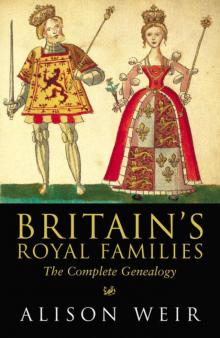 Britain's Royal Families: The Complete Genealogy
Britain's Royal Families: The Complete Genealogy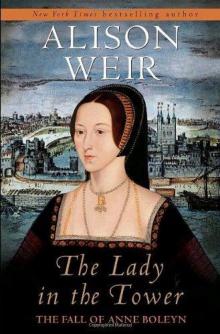 The Lady in the Tower: The Fall of Anne Boleyn
The Lady in the Tower: The Fall of Anne Boleyn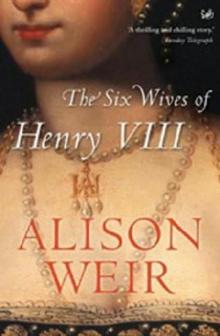 Six Wives of Henry VIII
Six Wives of Henry VIII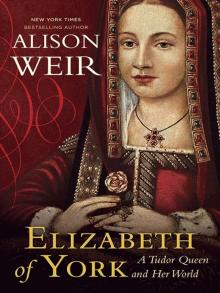 Elizabeth of York: A Tudor Queen and Her World
Elizabeth of York: A Tudor Queen and Her World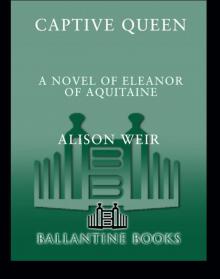 Captive Queen
Captive Queen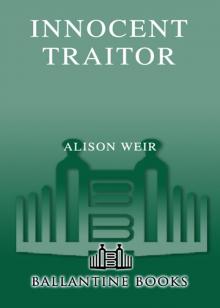 Innocent Traitor
Innocent Traitor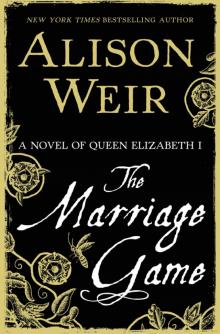 The Marriage Game
The Marriage Game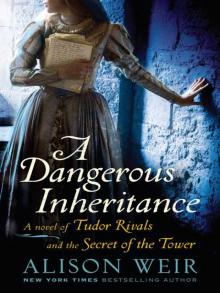 A Dangerous Inheritance
A Dangerous Inheritance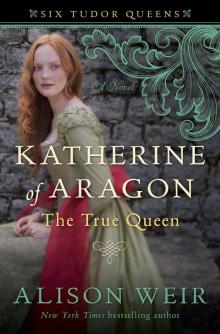 Katherine of Aragón: The True Queen
Katherine of Aragón: The True Queen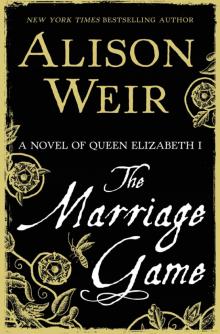 The Marriage Game: A Novel of Queen Elizabeth I
The Marriage Game: A Novel of Queen Elizabeth I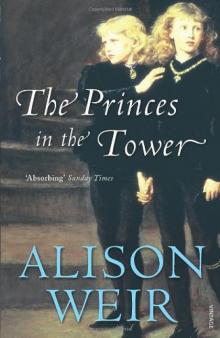 Princes in the Tower
Princes in the Tower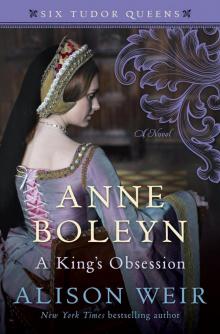 Anne Boleyn: A King's Obsession
Anne Boleyn: A King's Obsession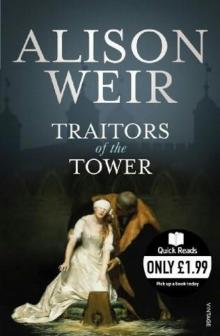 Traitors of the Tower
Traitors of the Tower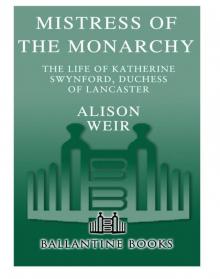 Mistress of the Monarchy: The Life of Katherine Swynford, Duchess of Lancaster
Mistress of the Monarchy: The Life of Katherine Swynford, Duchess of Lancaster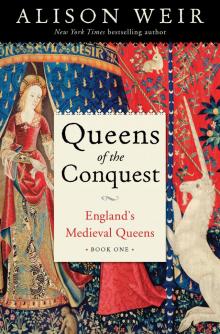 Queens of the Conquest: England’s Medieval Queens
Queens of the Conquest: England’s Medieval Queens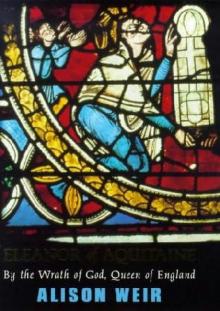 Eleanor of Aquitaine: A Life
Eleanor of Aquitaine: A Life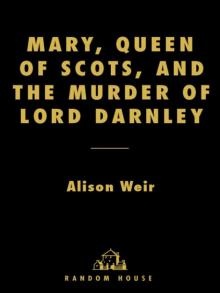 Mary, Queen of Scots, and the Murder of Lord Darnley
Mary, Queen of Scots, and the Murder of Lord Darnley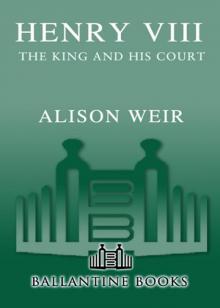 Henry VIII: The King and His Court
Henry VIII: The King and His Court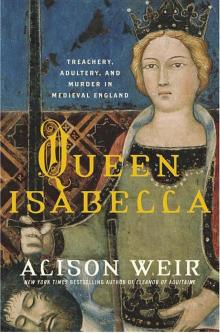 Queen Isabella: Treachery, Adultery, and Murder in Medieval England
Queen Isabella: Treachery, Adultery, and Murder in Medieval England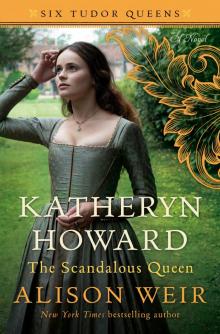 Katheryn Howard, the Scandalous Queen
Katheryn Howard, the Scandalous Queen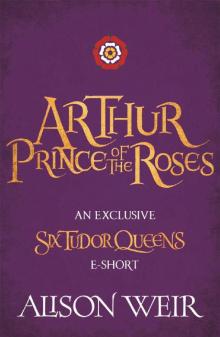 Arthur- Prince of the Roses
Arthur- Prince of the Roses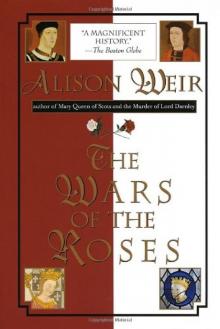 The Wars of the Roses
The Wars of the Roses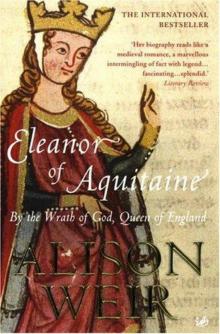 Eleanor of Aquitaine: By the Wrath of God, Queen of England
Eleanor of Aquitaine: By the Wrath of God, Queen of England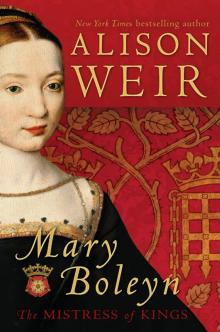 Mary Boleyn: The Great and Infamous Whore
Mary Boleyn: The Great and Infamous Whore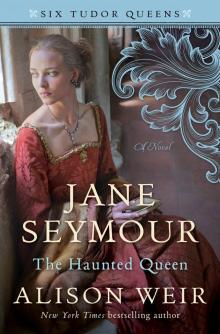 Jane Seymour: The Haunted Queen
Jane Seymour: The Haunted Queen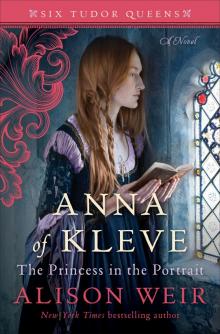 Anna of Kleve, the Princess in the Portrait
Anna of Kleve, the Princess in the Portrait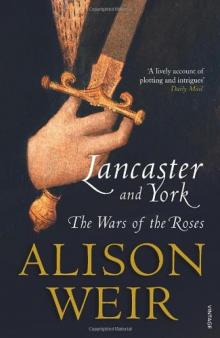 Lancaster and York: The Wars of the Roses
Lancaster and York: The Wars of the Roses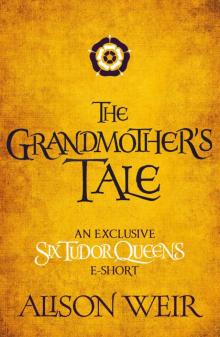 The Grandmother's Tale
The Grandmother's Tale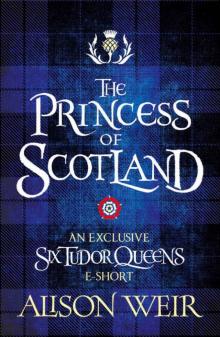 The Princess of Scotland (Six Tudor Queens #5.5)
The Princess of Scotland (Six Tudor Queens #5.5)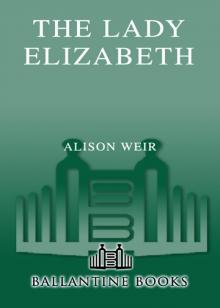 The Lady Elizabeth
The Lady Elizabeth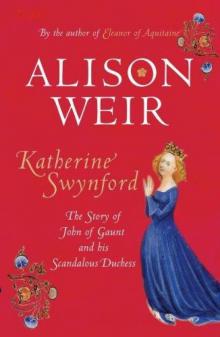 Katherine Swynford: The Story of John of Gaunt and His Scandalous Duchess
Katherine Swynford: The Story of John of Gaunt and His Scandalous Duchess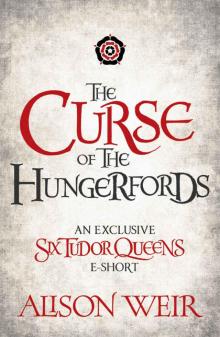 The Curse of the Hungerfords
The Curse of the Hungerfords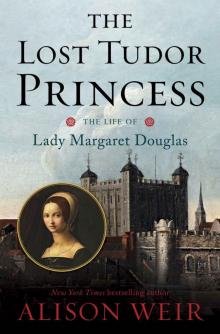 The Lost Tudor Princess: The Life of Lady Margaret Douglas
The Lost Tudor Princess: The Life of Lady Margaret Douglas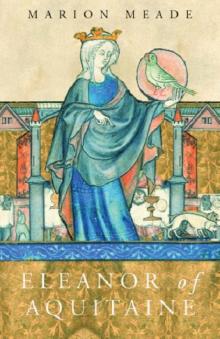 Eleanor of Aquitaine
Eleanor of Aquitaine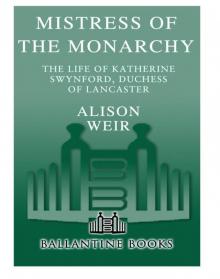 Mistress of the Monarchy
Mistress of the Monarchy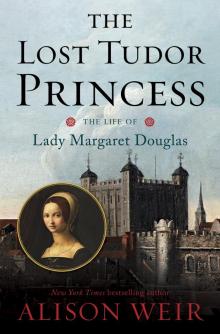 The Lost Tudor Princess
The Lost Tudor Princess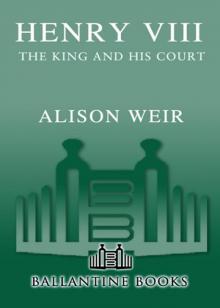 Henry VIII
Henry VIII Anne Boleyn, a King's Obsession
Anne Boleyn, a King's Obsession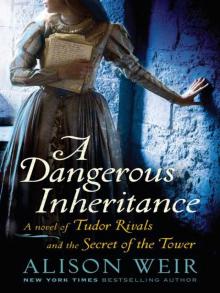 A Dangerous Inheritance: A Novel of Tudor Rivals and the Secret of the Tower
A Dangerous Inheritance: A Novel of Tudor Rivals and the Secret of the Tower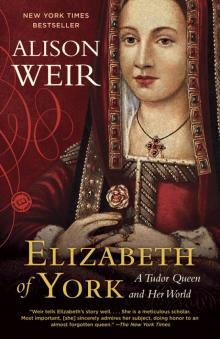 Elizabeth of York
Elizabeth of York Katherine of Aragon, the True Queen
Katherine of Aragon, the True Queen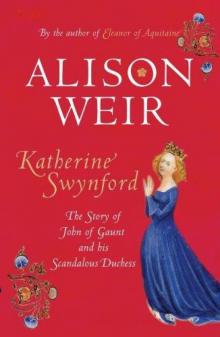 Katherine Swynford
Katherine Swynford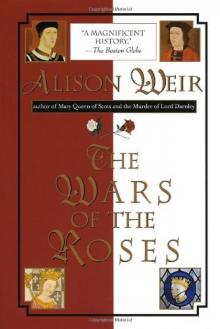 Wars of the Roses
Wars of the Roses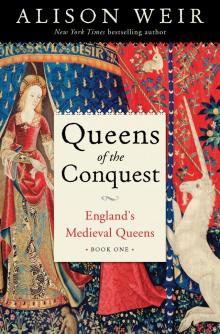 Queens of the Conquest
Queens of the Conquest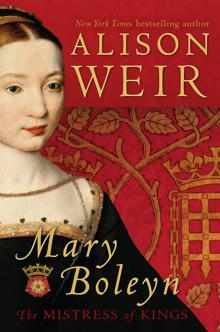 Mary Boleyn
Mary Boleyn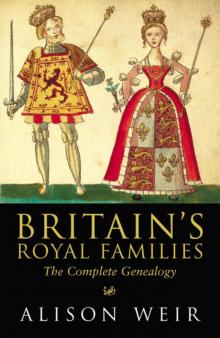 Britain's Royal Families
Britain's Royal Families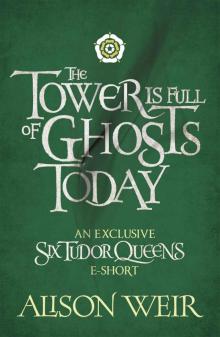 The Tower Is Full of Ghosts Today
The Tower Is Full of Ghosts Today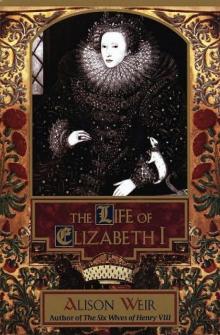 Life of Elizabeth I
Life of Elizabeth I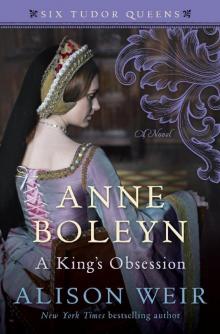 Anne Boleyn A King's Obssession
Anne Boleyn A King's Obssession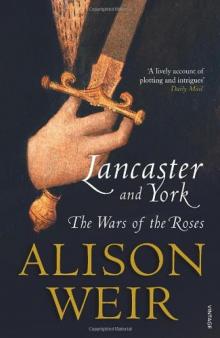 Lancaster and York
Lancaster and York Jane Seymour, the Haunted Queen
Jane Seymour, the Haunted Queen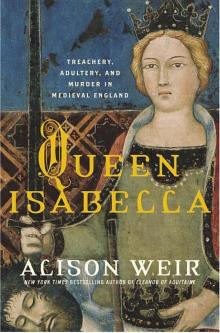 Queen Isabella
Queen Isabella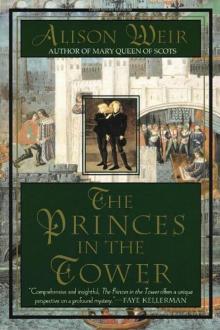 The princes in the tower
The princes in the tower